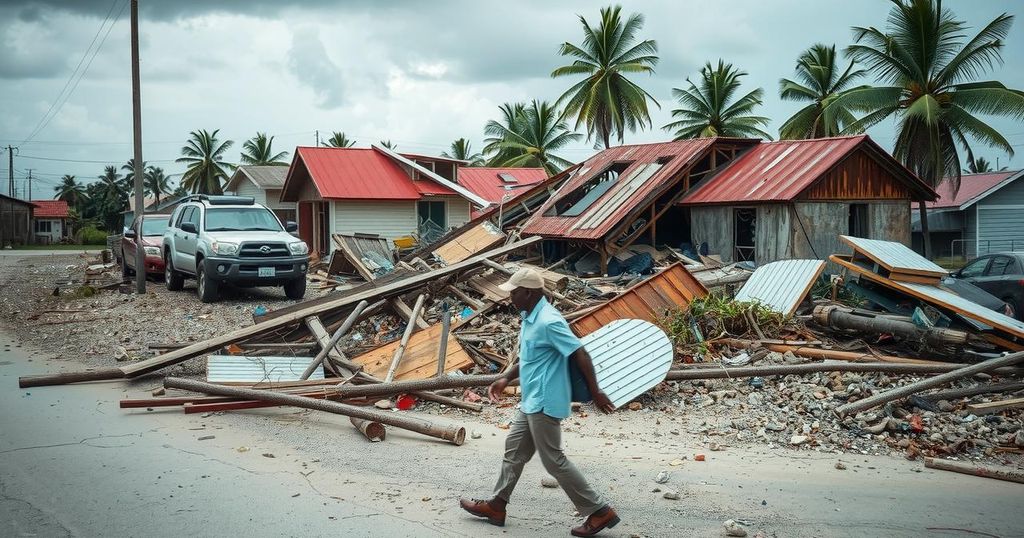Global news
AC, ACACIO TEMBE, AFRICA, CAN, CANJAR AMADE, DEATH TOLL, DISASTER MANAGEMENT AGENCY, EMERGENCY RESPONSE, LUISA MEQUE, MALAWI, MAYOTTE, MECUFI, MOZAMBIQUE, NATIONAL INSTITUTE FOR DISASTER RISK MANAGEMENT AND REDUCTION, NATIONAL WEATHER AGENCY, NATURAL DISASTER, NATURAL DISASTERS, NIASSA, PEMBA, VOA, WHATSAPP
Fatima Khan
0 Comments
Cyclone Chido Devastates Mozambique, Leaving 34 Dead and Millions Affected
Cyclone Chido devastated northern Mozambique, killing at least 34 people and injuring 43. Approximately 2.5 million residents were affected, with Cabo Delgado province suffering extensive damage. The cyclone, which made landfall on Sunday, has left communities in ruins and ongoing weather impacts are expected. Mozambique’s vulnerability to climate change exacerbates the situation, with potential for increased storm frequency in the future.
Cyclone Chido struck Mozambique on Sunday and Monday, resulting in a tragic toll of at least 34 fatalities and 43 injuries. According to Luisa Meque, the head of Mozambique’s disaster management agency, these figures are preliminary and rescue operations are ongoing as teams sift through the debris. Approximately 2.5 million individuals have been affected across the three northern provinces, predominantly in Cabo Delgado, where significant destruction has been reported.
The cyclone made landfall in the Mecufi district, resulting in catastrophic damage, with all homes reported as affected and very few structures left intact. One resident, Canjar Amade, recounted his harrowing experience of the cyclone’s violent winds, which dismantled his home. Furthermore, Acacio Tembe, a meteorologist at the national weather agency, noted that the remnants of the storm are continuing to impact Niassa and Cabo Delgado provinces with heavy rains and winds.
Additionally, the cyclone affected areas beyond Mozambique, including Malawi and the island of Mayotte, and is projected to dissipate near Zimbabwe by late Tuesday. Mozambique is considered one of the nations most vulnerable to climate change, experiencing recurrent cycles of floods and tropical cyclones during the rainy season from October to April. Experts warn that due to a potential La Niña effect predicted for early 2025, the frequency and severity of heavy rainfall and tropical cyclones in the Indian Ocean region may increase, further exacerbating current drought conditions.
Cyclone Chido highlights the severe effects of climate change on Mozambique, a country that frequently undergoes natural disasters, particularly during the rainy season. The cyclical nature of floods and storms, combined with the increasing intensity of these events linked to global warming, poses significant challenges for disaster management and recovery efforts. Vulnerable communities in Mozambique, especially in coastal provinces like Cabo Delgado, face immense obstacles as they strive to rebuild after such catastrophic events.
In conclusion, the devastation caused by Cyclone Chido underscores the urgent need for effective disaster management strategies in Mozambique, a nation beleaguered by environmental challenges. With official reports indicating vast displacement and destruction, the long-term impacts of such storms are further anticipated to worsen due to climate change. Moving forward, the international community’s support will be vital for recovery and future preparedness.
Original Source: www.voanews.com




Post Comment